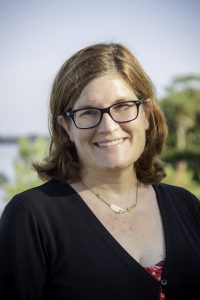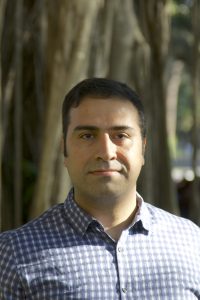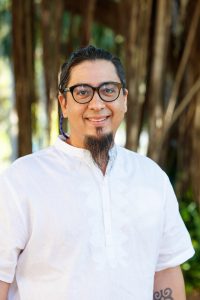The AOC in Music develops students’ musicianship as they engage with a wide array of musical styles and theoretical approaches. Music students listen, observe, interpret, perform and create, in order to develop historically- and culturally informed approaches to music and sound.
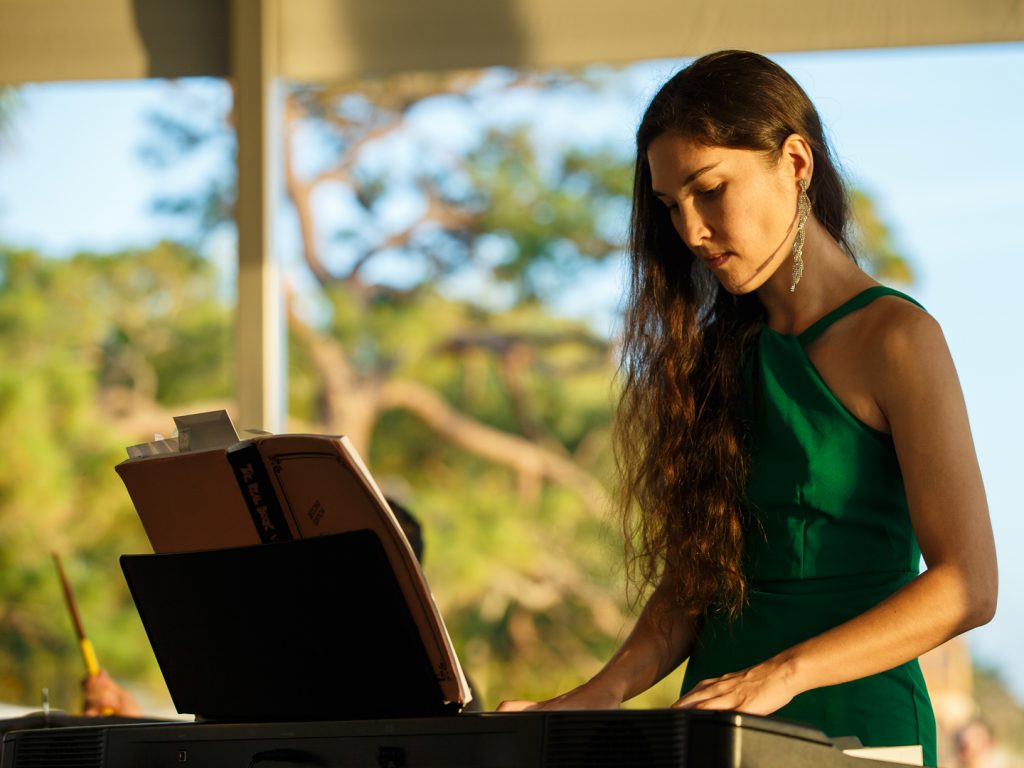
About the Music Area of Concentration
Students are encouraged to integrate approaches to music and sound across academic and artistic disciplines and areas of study to achieve the breadth that a liberal arts institution makes possible. Students also combine music with another AOC or study music as part of an AOC in Humanities, Liberal Arts, or a Special Program AOC created by the student (Media Studies, Sound Studies, Performance Studies). Courses in Music range widely, and include such topics as Music Theory; Electronic Composition; Opera, Ballet, and the Supernatural; Sound Studies; Popular Music and Societies of the Hispanic Caribbean; and Music and the Environment. Relevant coursework in fields from Anthropology, Sociology, History, Mathematics, Philosophy, Psychology, Political Science, English, Gender Studies, Environmental Studies, and Biology are encouraged, for exampmle, Anthropology of Performance or Sociology of the Arts.
Performance at New College offers a further opportunity to integrate theory and practice. New Music New College presents world-class performers of contemporary and experimental music in concert, involving students in at least one performance each academic year. Student musicians may perform in the New College Chorus or Chamber Music Ensemble. Off-campus opportunities exist as well, including Sarasota Orchestra’s education program or State College of Florida’s concert band.
“A New Music New College concert is an experience that is created by everyone in the room, together. These events celebrate the creative potential of musicians and audiences, and often break down walls between the two. Building community and knowledge through music is a mission that resonates with the broader mission of the College, and the series couldn’t have grown from any other environment. “
Mark Dancigers
Assistant Professor of Digital Media and Music
Director of New Music New College
Featured Course
MUSC 2120
Electronic Music I
This class examines the history, technology, and techniques of creating, understanding, and listening to electroacoustic and electronic music. Students will develop an understanding of electroacoustic and electronic music techniques through lecture/demonstration, reading/writing/listening assignments, exams, and a series of technical studio projects utilizing a variety of music technology tools. Topics include principles of sound and acoustics, sound reproduction systems, principles of analog/digital audio, mixing and signal flow, synthesis, sampling, MIDI, an introduction to DAW-based composition and workflow, the evolution of electroacoustic and electronic music studio technology, and a historical survey of notable creators and their work.
Recent courses
|
|
Career Pathways
- Education
- Performance
- Conducting
- Composing
- Music Libraries
- Communications and Broadcasting
- Recording
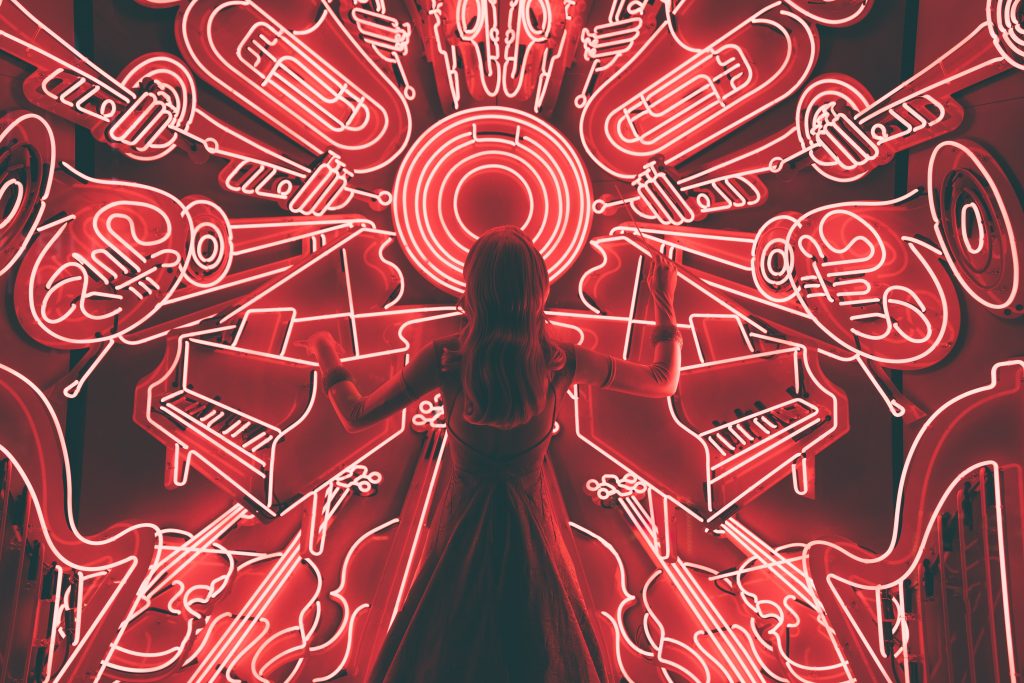
Arts & Culture at New College
Discover the New Music New College series, conversations with visiting artists, and other art and cultural opportunities at New College.
Contact Us
Humanities Division
Phone Number
Email Address
Location
Ace Academic Center 116
Music Faculty
Dr. Maribeth Clark
Professor of Music
Chair, Division of Humanities
Dr. Ashkan Tabatabaie
Visiting Assistant Professor of Music and Digital Media
Dr. Hugo R. Viera-Vargas
Assistant Professor of Caribbean/Latin American Studies and Music
Dr. Stephen Miles
Professor Emeritus of Music

